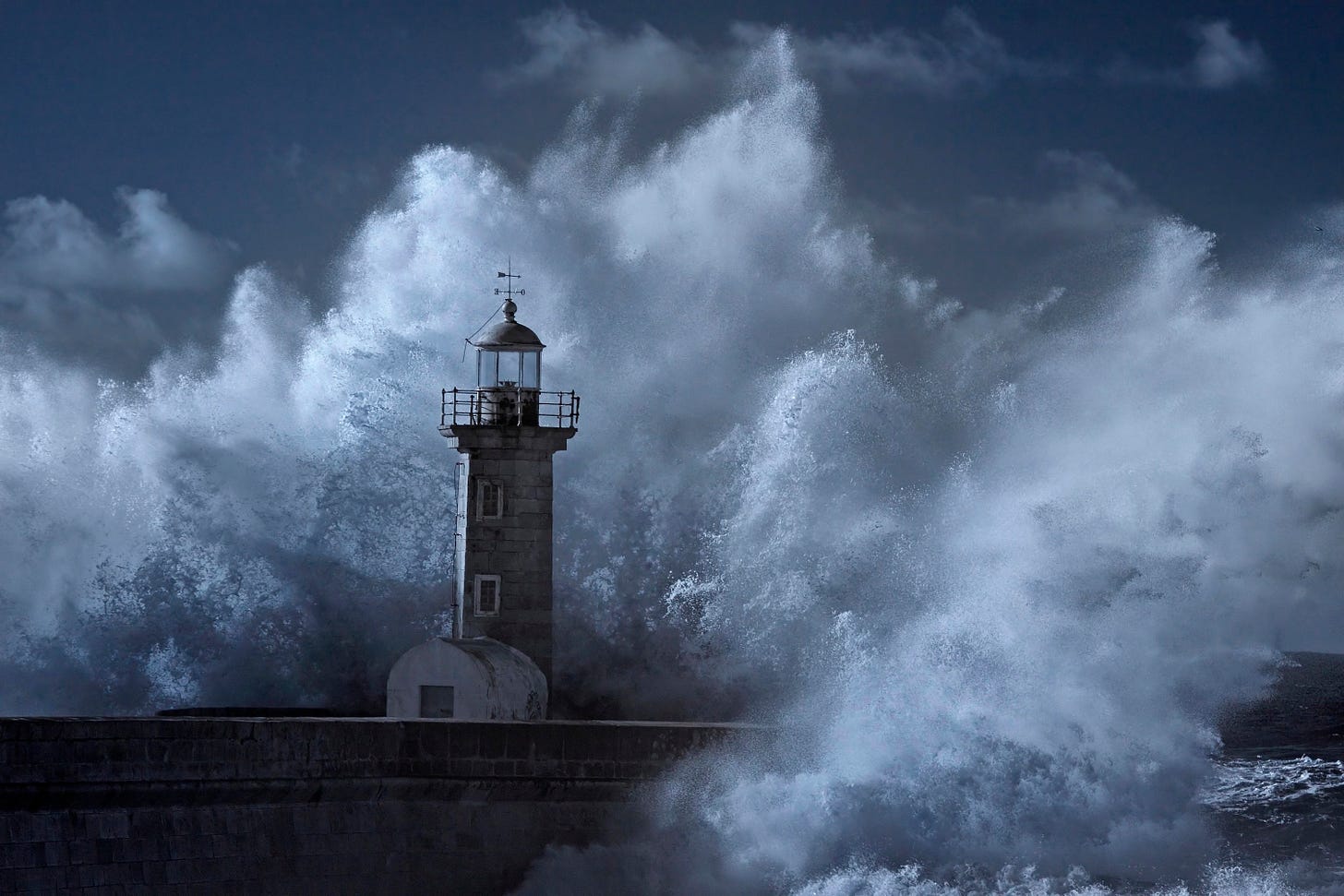Authors have spilled tubs of ink on the importance of courage. From G.A. Henty and C.S. Lewis in past generations to Maya Angelou and Bari Weiss more recently, courage is lauded as potentially the “most important” of all the virtues.
Henty and Lewis take a subtler view than our modern superlative usage. Henty said it is “the parent of almost all the others.” (H/T M.A. Franklin for this post last week.) Lewis got closer to the essence in The Screwtape Letters, “Courage is not simply one of the virtues, but the form of every virtue at the testing point, which means, at the highest point of reality. A chastity or honesty, or mercy, which yields to danger will be chaste or honest or merciful only on conditions. Pilate was merciful till it became risky.”
When your virtuous conviction meets resistance, either from other people or forces of spiritual evil, the test reveals which thing is stronger, which is more real to you: the goodness of the virtue (and the value of your character) or the cost.
In this contest, success or failure in the primary goal is not the measure of virtue. Did you lose because of honesty? Virtue. Did you gain because you fibbed? Vice. Whether your morality endured as you pursued the goal is what matters. Did you stand firm, regardless of the cost?
Courage, then, is the empowering strength of the other virtues. Like Atlas holding up the world, courage is the moral muscle on which we build character.
However, because courage is so strong, it can also be the most devastatingly twisted of the virtues. Courage is equally celebrated among the armies of aggressors and defenders. Both can’t be right.
For an individual example, when Macbeth’s conscience troubles him, his wife mocks his manhood for reconsidering their plot to murder the king. She convinces him with the famous line, “But screw your courage to the sticking-place / And we’ll not fail.” (Macbeth, 1.7) Courage as strength for usurping the throne? That’s vice.
This is the courage of the mercenary, the seeker of glory, the proud and self-enriching rogue. This courage is no engine for virtue. It’s an overheated EV battery on the way to self-immolation.
How do we exercise the good kind of courage and avoid the wicked?
We typically define courage in the sense of bravery or valor: showing determined strength in the face of fear. But where courage differs is in its connection with the heart. The word comes to us from the French and Latin words for heart. It carries all the metaphorical implications of strength or weakness of heart and will as signs of good or bad character. Courage, then, is somewhat neutral as a virtue.
With the focus on courage as the engine of other virtues, less ink has been spilled on what drives this strength toward moral good. The other virtues may rely on the muscle of courage for their exercise but all of them, courage included, burn the fuel of love.
Love is the motivating factor in courage and all the virtues when properly oriented. Not the emotional and weak, feel-good love that most people mean these days. True, self-sacrificing, righteous love for virtue and for others.
Courage might be fortitude in the face of fear, but the apostle John tells us that love has no fear. Perfect love, the love of God, casts it out. (1 John 4:16-18)
Finding that love changes the math on fear and courage.
Courage won’t drive you to honesty if you don’t love truth or restrain gluttony if you love food more than your health. It won’t empower you to resist sexual temptation if you don’t have a virtuous love for your wife. It won’t inspire diligence if you don’t love your dreams more than your comfort, and you’ll boldly ignore charity if you love things more than neighbors.
Apart from love, courage is an engine for self-indulgent wickedness.
With love, courage is a powerful flywheel for noble character.
Want more courage to live virtuously in this world? Cultivate love for what is good and worthy and beautiful.
If you found this helpful, please let me know: Where are you exercising courage and what moves you to valor? (My answer is in the updates below).
Updates:
If you haven’t heard, I’m writing a new series of kids’ books to pass on classic virtues and give you more wholesome stuff to read to your kids.
Courage happens to be the theme of the first book.
Like this article, it’s not just about bravery for its own sake, or in the pursuit of adventure. It’s about virtuous courage in the defense of your home and those who live there. It’s also about passing on courage to those who have let fear win after chasing foolhardy thrills.
If you’re curious about a series that promotes virtues for kids through fun, adventurous stories, then please sign up here to be notified when the Kickstarter is ready. We’re aiming for the campaign launch after the holiday rush.
It’s a collaborative project with my daughter, so we’re using a pen name. She can’t wait to see it become real. I hope you’ll join the campaign and help spread the virtues that created (and can restore) our culture.
I’ll be posting more updates under my articles as the book and campaign take shape.
In addition to Imago Dad, Brandon Wilborn writes fantasy with spiritual themes. His current project is a series for young readers about a dog with an imagination that highlights the classic virtues of our Judeo-Christian heritage. But he’s already got a couple of fantasy books and stories available at BrandonWilborn.com





